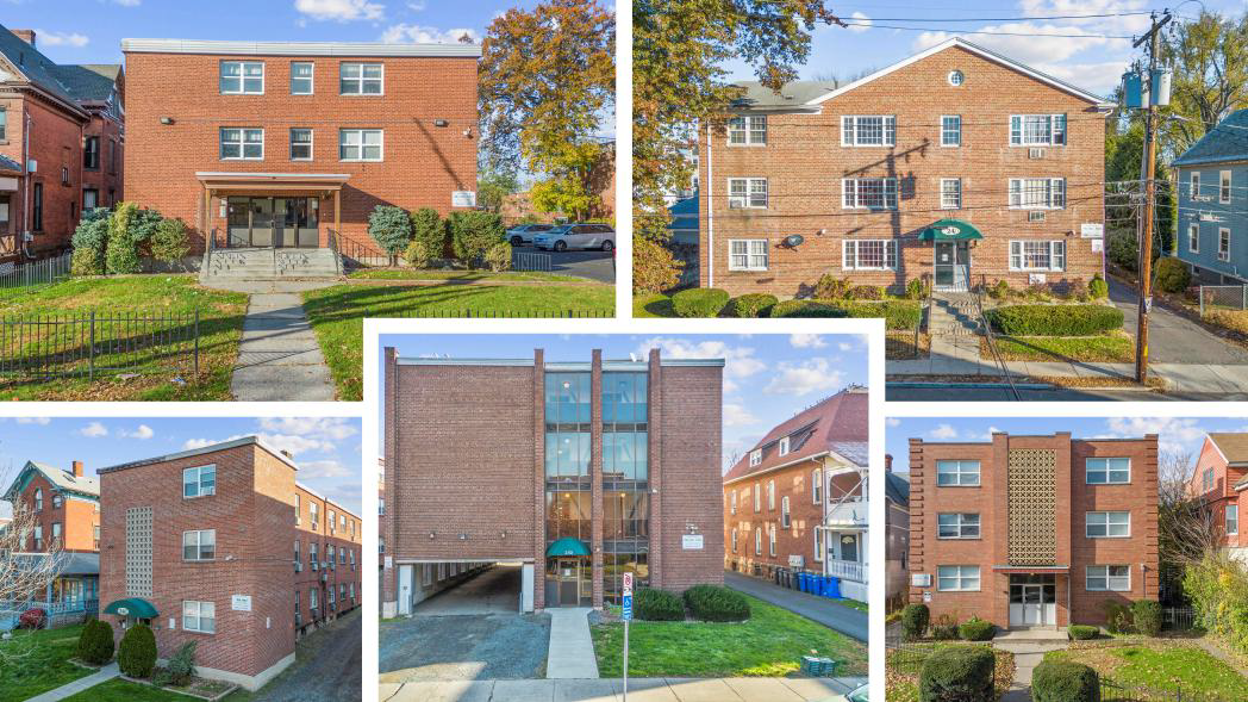case Study I
Michael A. - From Stressed Landlord to Passive Investor
Michael A., a landlord in Hartford, Connecticut, found himself drowning in the daily tasks of managing his 99-unit, Class C apartment portfolio. The constant repairs, tenant issues, and late-night calls left him burnt out and yearning for a more passive income stream. With no desire to bring in an expensive property management company, he knew he had to find another way out.
Traditionally, Michael's only option seemed to be selling the entire portfolio, paying a massive tax bill, and sacrificing a steady income source he'd built over time. Daunted by the prospect of investing his smaller post-tax nest egg in investments he didn’t find appealing (like stocks, bonds, and mutual funds), his CPA suggested he reach out to an expert real estate transition planner for a different approach.
After meeting with JD Altobello and discussing his wants and needs, Michael was introduced to Delaware Statutory Trust (DST) investments. DSTs offered a compelling solution. By strategically exchanging his properties for a portfolio of seven DSTs which were diversified across property classes and geography.
Michael was able to achieve:
Reduced Management Burden: DSTs eliminated the need for day-to-day property management. Professional firms assumed those responsibilities, freeing up Michael's time and energy.
Maintained Income Level: The DSTs were carefully chosen to generate a combined income stream that matched Michael's previous rental income.
Diversification: Unlike his concentrated portfolio in Hartford, the DSTs offered geographic and property class diversification, mitigating risk.
Michael's investment transformed him from a stressed landlord to a passive investor. He now enjoys the benefits of real estate ownership without the burden of management, all while maintaining his desired income level and achieving diversification across different markets.
* Individual results will vary.
before
After
case Study II
Jim & Steve's Sign of the Times
Jim and Steve carried the torch of their family's sign business in Allston, MA that had illuminated Boston’s brightest spots for over a century. Established in 1916, the shop was a local landmark, as were their sparkling creations. Then, a developer came knocking with an offer they couldn't refuse - a chance to sell the building for more than they had ever dreamed possible.
Retirement beckoned, but Jim and Steve weren't ready to hang up the “closed” sign just yet. They explored options and discovered a 1031 exchange, a tax-deferred strategy allowing them to reinvest the sale proceeds into a "like-kind" property.
Their solution? A two-pronged approach. First, they identified a new, functional building in the suburbs to house their sign-making operation. This ensured business continuity with minimal disruption.
Next, to diversify their wealth and secure passive income, they utilized the remaining 1031 exchange funds to co-invest in Delaware Statutory Trusts (DSTs). These curated investment bundles offered access to income-producing real estate, including a sought-after hotel in a Colorado ski resort.
By strategically leveraging the 1031 exchange, Jim and Steve secured their future. They secured a new business location, diversified their assets with income-generating DSTs, and, most importantly, deferred capital gains tax, allowing them to enter retirement with more financial peace of mind. This case highlights the power of strategic tax planning and the importance of seeking professional guidance when faced with a windfall.
before
After
New Britain Landlord Leverages 1031 Exchange for Diversification
Ron G., a landlord in New Britain, CT, faced a dilemma. The value of his mixed-use building had reached an all-time high, but selling meant a hefty capital gains tax bill. Looking to diversify his portfolio in a tax-efficient manner, Ron reached out to DST Authority for advice
DST Authority used their proven strategies to allow Ron to sell his building and reinvest the proceeds into “like-kind" properties within a specific timeframe, deferring capital gains taxes. However, Ron didn't want the hassle of managing individual properties again.
The solution? DSTs (Delaware Statutory Trusts). These investment vehicles pool investor funds to acquire a portfolio of income-producing real estate across various sectors and locations. Ron identified two DSTs, each holding a basket of properties in different states. He chose apartment buildings in a high-growth Midwest market, and grocery store anchors within shopping centers in New England leased to a market-leading retailer. As Ron continues his path to retirement, he will be selling more buildings and adding to his DST holdings which eventually will pass to his heirs as income streams, not headaches.
case Study III
before
After
FAQs
What happens to the mortgage I have on my current property?
Two things: First, it is paid off at the closing using the funds your buyer brings to the table. Second, the same amount of debt needs to be included in the replacement property in order for your 1031 exchange to have maximum benefit to you. But don’t worry, we offer DSTs with debt already in place that is non-recourse and does not impact your credit or PFS.
I just sold a property and didn’t use a 1031 exchange. Can I still purchase DSTs and defer my taxes?
Unfortunately not. This scenario how important it is to reach out to us as early as possible once the decision to exit a property is made.
Is this a REIT, FUnd, or syndication?
No! These are trusts specifically formed under IRS Revenue Ruling 2004-86 which lays out the rights and obligations of the trusts. All properties that are in the trust need to be identified from it’s inception preventing a “blind pool” structure. Things like major redevelopment or refinancing are also prohibited.
What happens when the dst sells? Can I sell early?
The investors will have a choice to exchange into a new program or pay the taxes which would revert to the original property they owned. Should the investor pass away, their heirs would receive stepped-up basis on the inherited interests under current IRS rules. At present, there is no efficient marketplace for secondary sales of DST interests.
Can I use dsts with other replacement properties?
Yes. It is possible to combine wholly-owned real estate with DSTs. We can help with the identification paperwork for the Qualified Intermediary to make everything work for maximum tax deferral.
How are taxes handled on dst income?
Since the underlying asset(s) in each DST are real estate holdings, they enjoy many of the tax benefits that traditionally held real estate does. Each investor receives their pro-rata share of deductions which can be applied to their personal income taxes. A tax advisor with strong real estate and DST knowledge will be able to provide more detailed information on a client’s specific situation.









